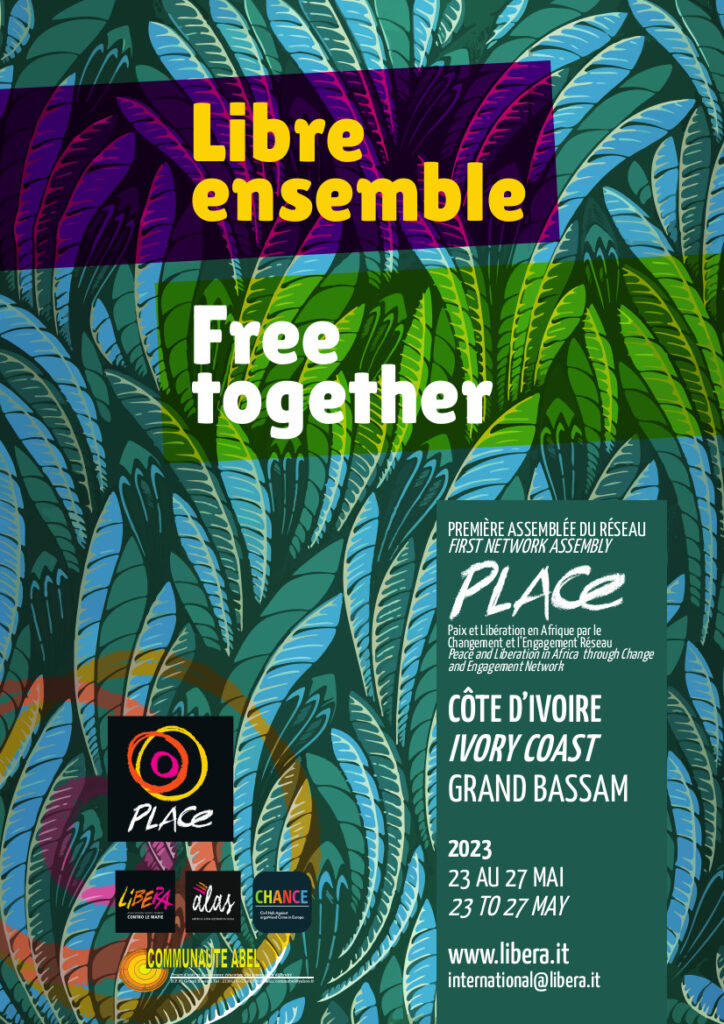First Libera’s network assembly in the African continent: 23th – 27th May in Ivory Coast
The city of Grand-Bassam was the first capital of Ivory Coast from 1893 to 1900 and is located about 20 km far from Abidjan, the current economic capital of the country. The municipality of Grand Bassam has about 90,000 inhabitants, who are ethnically very diverse. The city, in strong demographic growth, like all the regions in the south of Ivory Coast, displays all the difficulties and disparities of a development that, although evident, only slightly benefits the weaker groups of the population. Poverty, reaching almost 40% of the population between the city and the countryside, and the problems connected to the population growth and its urbanisation, constitute fundamental unresolved issues.
That is why the Gruppo Abele, through the Communauté Abel, has been a fundamental reference point for the vulnerable population of the area since the early 1980s, thanks to the many educational and socio-cultural activities promoted over the years. Indeed, it is within the Communauté Abel facilities that the first assembly of the PLACE (Peace and Liberation in Africa for Change and Participation) network, promoted by LIBERA, will take place from 23 to 28 May 2023.

A symbolic place where representatives of over 40 realities coming from 16 countries of the African Continent will meet. The purpose is to exchange opinions, build shared analyses starting from the individual countries and then common projects capable of emancipating in the future the continent’s fate. Last February, some of the network’s representatives met in Kampala, Uganda, to share the initiative’s outline and lay the groundwork to follow up on the collective work carried out so far. Representatives of a number of associations from Ivory Coast, Uganda, Malawi, Nigeria, Tanzania and Kenya were there and shared with Libera the values, mission and strategy they intend to promote together.
“An assembly, in May, that will focalise the themes of peace and social justice starting with some areas of intervention on: corruption, trafficking and organised crime, discrimination and racism, climate justice and educational and prevention paths.”
We are aware that the challenge is as great as the continent and its complexities: starting with the general issue of security that holds within it the relative problems of criminal and terrorist groups, and the brutal violence that affects some areas, consider some of the continent’s main powder kegs such as Sahel and Mozambique, or the dramatic situation of a country as big and rich in resources as it is problematic that is the Democratic Republic of Congo. A clear geography, which cannot fail to take into account the role of international actors in the various countries, the special interests of increasingly authoritarian democracies, and territories that have been looted of their natural resources for an economy of war and power. Among the network’s objectives is also to dismantle and deconstruct the stereotype of the many migrants criminalised just for dreaming of Europe. An analysis of the criminal and mafia phenomena on the one hand, and support for victims of trafficking and smuggling, or forced labour, on the other, are some of the initiatives to be taken in order to truly build an alliance with a dynamic continent whose population is estimated to reach two billion by 2050. A mission and a challenge: to contribute to the sustainable development and social justice of a self-sufficient African continent in a context of peace, non-violence, equality and without insecurity, racism and corruption.
